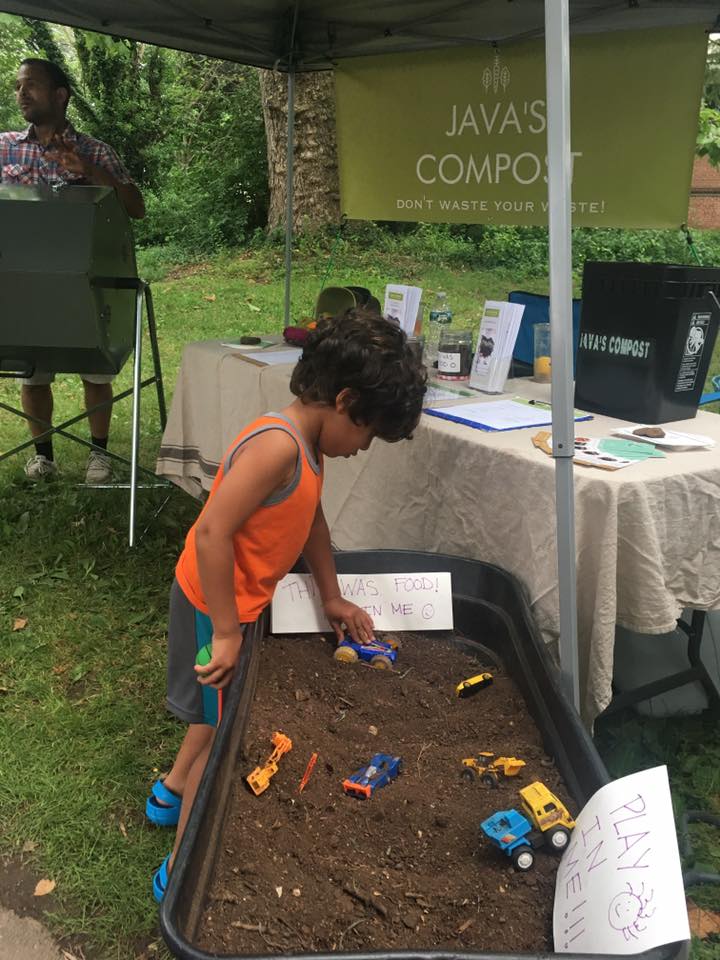249. Java’s Compost “Designed for Easy”| Java Bradley | Northeast NJ
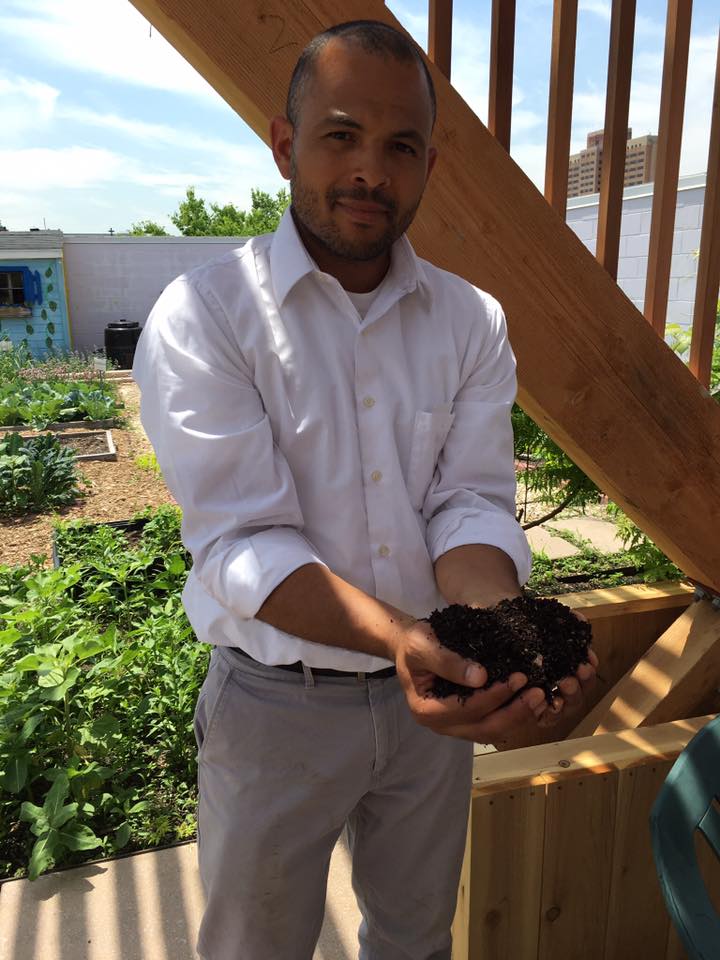

I am thrilled to introduce my featured guest today on a webinar by John Lee Dumas and the guy hosting the webinar wanted a business example and she explained she sold compost tumblers and I was able to connect with her and today here is her husband Java from Java’s Compost!
Tell us a little about yourself.
I live in the NE my wife and I and our 3 children
NE region of NJ
we own a little company called Java’s compost
Java’s Compost Service
we basically offer 2 services
one is a do it yourself option
basically the do it yourself option
we have a starter kit
set up
a set of items that a backyard or home composter might want
keep things simple
We want to set up a system for people. A lot of times when your steps are not clear, its easy to get in your compositing efforts. At some point the system breaks down
The system
includes a tumbler
includes a square rectangle shaped bucket that its easily in the sink or a corner or someplace
and a counter top
all optional
if someone says, I have a composter already in the backyard, we will work with whatever system they have or whatever they want

Compost Orientation
Also, we have an option for an orientation where we go over the
dos and don’ts in your backyard
what can you compost
what are the important steps
the recipe
so people are well educated or better educated
they know what whatever happens you can always remedy your system
Things that can come up can be
smell or pests
dy
full
I love this because one I am building a garden course, and I feel like the first step is building compost and people are like ick, no, but I love the orientation idea I think you should have a compost orientation webinar.
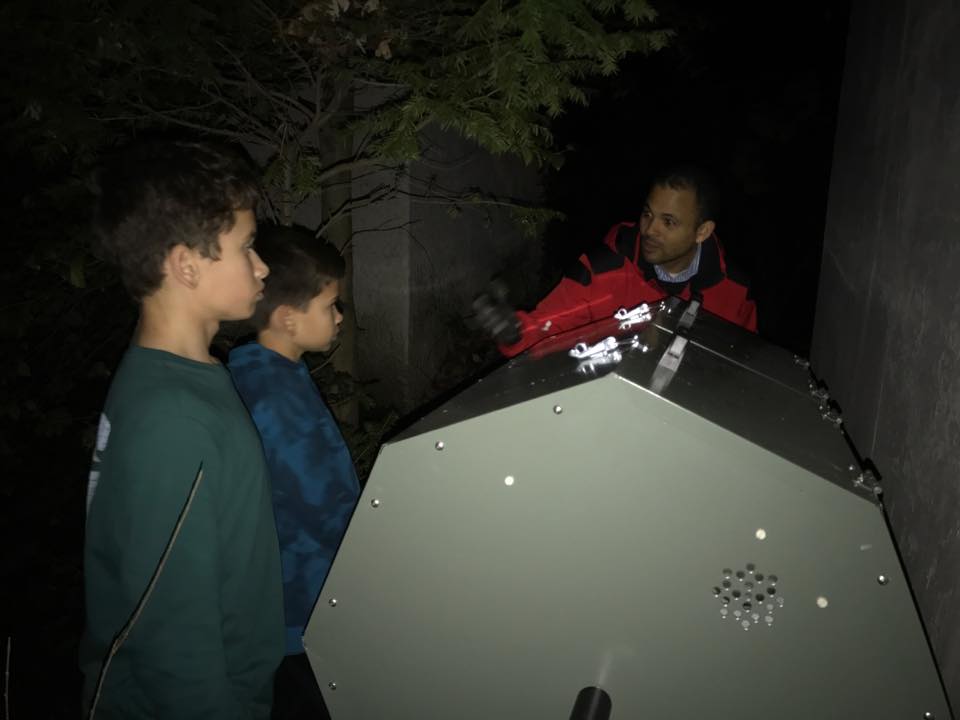
Compost Orientation Webinar: we have been talking about for a while
how can we digitize this whole thing where we have the resources that we make available for a broader audience
strategies
techniques
etc
we haven’t had time to get around to it,
definitely
god willing
Tell me about your first gardening experience?
Well you know interestingly I don’t have a ton of gardening experience, but my first exposure was as a small boy. I grew up in San Francisco CA I was about 15, w
when I was about 4-5 years old we had this backyard area
my mother when she was in her late teens lived on a farming commune in West VA
She picked up some farm-gardening experience and she decided to plant some simple vegetables
go out there occasionally
I don’t remember specifically what she grew tomatoes or anything
I thought this is pretty neat, I remember I didn’t know you could grow food in your backyard. Most kids grow up and think you get food at your local market
That was my first exposure.
We had some family friends in northern California, and they had a small homestead, and that was a very powerful experience
I think we only went up there once or twice but it left a lasting impression
animals they were managing
They were doing all the things a homestead does
churning their own butter
cream
do those things
gardening
basic animal husbandry
the beauty
magical most of that
really stuck with me
Over the course of time, it’s been mostly circumstances or time that has allowed us to do some gardening, or prevented us from doing as much as we like
Those are my early experiences to growing your own food and a little bit of self sufficiency
To be perfectly honest, I still feel like I am about as close to doing all of that as I was when I was 5-6, as far as being able to spend chunk of time doing any of these things
that is our hope to do more of that in the future
We did have some time, when we lived in a different town and the kids were much younger
joined the community garden
having
bring my boys down there
manage my plot
when everything was really popping
beets were coming up
string beans
cabbage
tomatoes
all these beautiful things.
magic of seeing that stuff on your kitchen table
everybody was impacted
new town we haven’t been able to start it yet, but again, god willing we will be able to that’s one of our goals.
But what I love about that is you’re actually talking about exactly what I think is important that even though you’re not ready to garden now, you’re figuring out the compost part before you get to garden.
I’m trying really hard not to interrupt because I was actually interviewed the other day and realized what people are talking about.
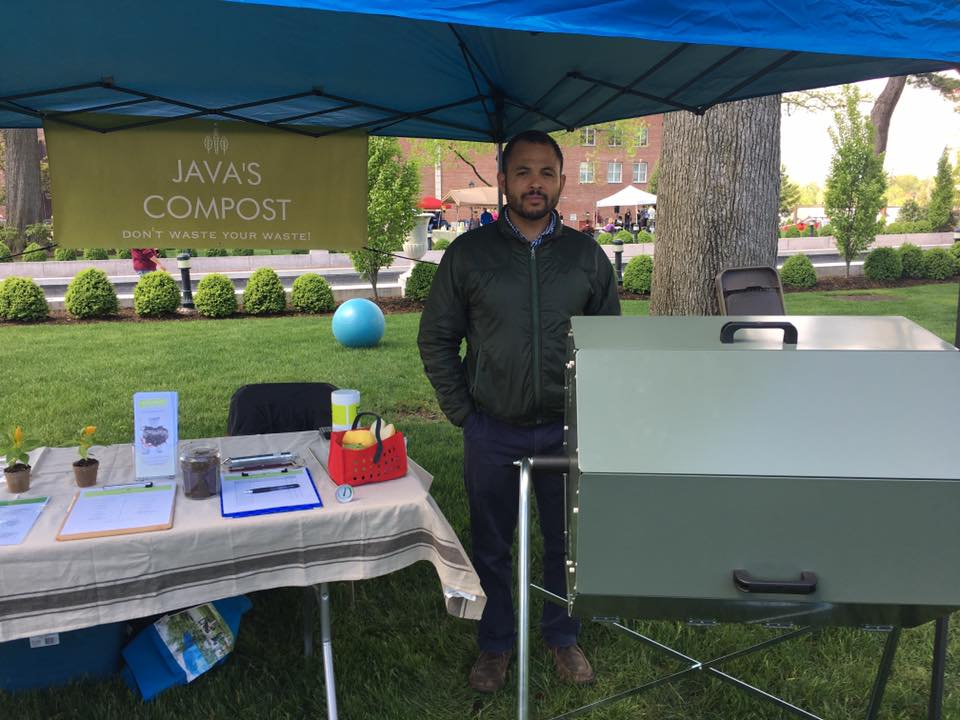
so the full service where we provide the same kit,
you get
- a tumbler
- a bucket
- bin
we take care of the composting
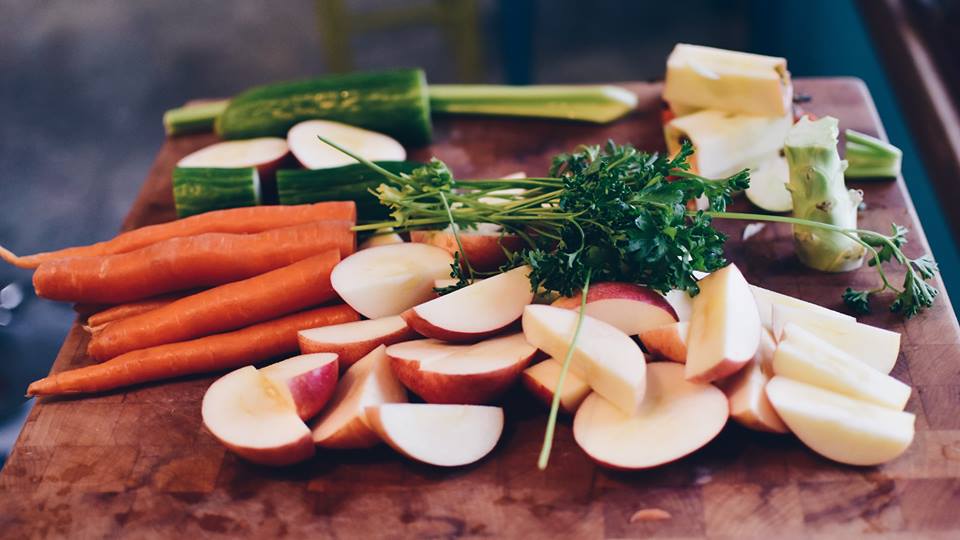
the only thing the family does if they want the full service option is they scrape their plates and clean out their fridges , whatever they are doing in the bucket we provide them
That bucket is put out once a week similar to their garbage, and we bring it around back on their property, and manage everything on their property and they get 100 of the finished material with minimal work. That’s the full service option
you can get a significant amount of material that way.
Full service
- a tumbler
- a bucket
- bin
- we take care of the composting
- manage everything on their property
- they get 100 of the finished material with minimal work.
4-5 member family
You’re producing upwards of 5 gallons or more a week, you’re filling up your bucket to the top
that’s over a 1000 lbs of food scraps every year for that family
you break it down
ends up being somewhere between
200-250 lbs of composting material per person
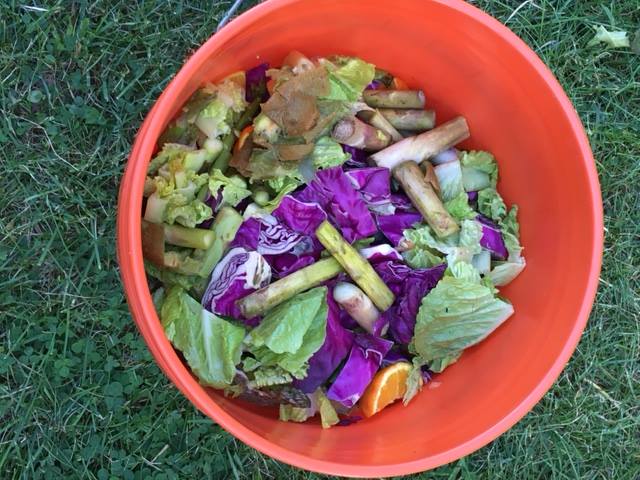
which is actually the EPA average that they have listed on their website
for food waste per person
When we’ve done data collection we come up just about their number
@241 lbs per person
our numbers come up about the same.
so you can get a lot of material
In the end you come up anywhere between 5-6-700 lbs of material a family would have at their disposal
they can put compost material on their
- vegetable garden
- landscaping
- lawn application
we can do that as well
landscaping application
do that as well
I wish you were here, my mom’s neighbors could use that. Your pictures are so gorgeous and the things are clean
Do you mix it in with grass clippings etc? Leaves, how does that work?
what we
the tumbler that we use fro the most part
Jora form composter
that the manufacturers recommended carbon input or dry material is wood pellets
used for horse bedding
it’s a soft wood, I believe it’s pine
collected at lumber yards
from the sawdust
pelletize it
incredibly effective
very efficient
that’s the carbon input that we put in to every batch that we put into the composters
Every week this is what we do
this is what we tell the diy customers
work out your ratios before hand,
fill up the first fraction of the bucket
1/4 or 1/5 of the way with the wood pellets
that changes the ratio, typically you look on line, you do some reading
if you look online the ratio is typically 2-3 one
dry to wet
browns to greens
you typically have more of your carbon rich material then your nitrogen rich
because it’s pelletized
but when you’re using the wood pellets
moisture it expands
In the brochure, it says something like,
carbon-nitrogen
dry-wet it’s only 1-10 when you’re using the wood pellets which is a significant reversal the extreme
normal carbon material that you put in
it expands a lot typically we don’t go with 1-10 we go with 1-4 or 1-5
we have found that when a family is just starting out we encourage them to use more then less, start out with 25% of your bucket with wood pellets for the first two weeks
2nd two weeks so 20%
then scale back you can use less and less, so you are dealing with smaller ratios
once you get a good healthy
that will help element odors sand pests etc.
very effective way of managing your compost bins
wood chips in our own composting efforts over the years we have used a mix of wood chips and pellets
years ago we would save up our paper bags from local grocery store
every couple of weeks, I would go through and spend 12 hour 40 minutes, shredding paper bags and adding that to the compost bin but when you have a ready supply of wood chips or pellets it makes it easier to manage the labor you have to put into
only down part

the more labor intensive dry material
more
the free dry material
- paper bags
- junk mail
more labor intensive
super simple material requires a little more to access you either have to find a
- tree guy
- neighbor who just took a tree down,
- wood chips
- tree taken down
- or pay for wood pellets
pros and cons and all the different options
a lot of times
different carbon sources and components
all the options
in this day and age
people are so busy they just go with the one that’s simplest
least amount of labor
as you said earlier or maybe it was on your website, they’re already buying this and spending money on it.
do you want to tell people what it looks like? Because I’ve been to the website and seen it.
dEsigned in Sweden but it’s manufactured in China, around 1992?1994
There was some claim to them being the first or if not the first
the original tumbler
whether they were one of the first or just t created a really nice version
it s a very
created a really nice version
nice looking piece of equipment
- galvanized steel
- weather resistant paint
- olive green color
- insulation
styrofoam ~ polyethylene=food grade styrofoam
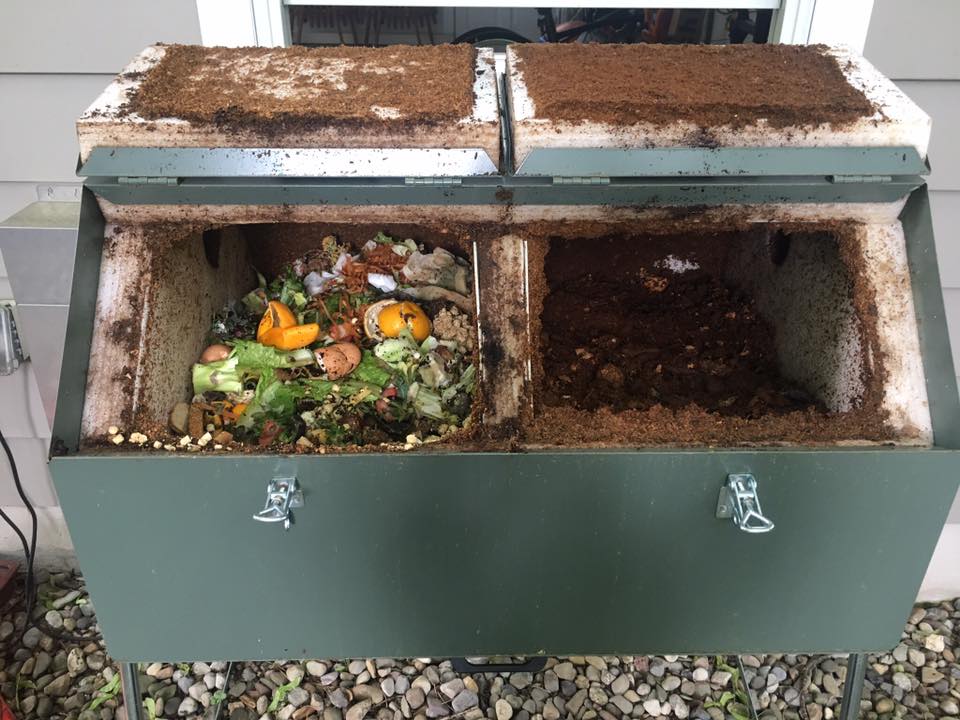
not polystyrene is the stuff outlawed in CA for use n outlawed for use with food materials
not a harmful material
in terms of the design
it’s simple to manage
the turn on it is super easy
used many different types of tumblers
old tumblers
difference between these different models
there’s so many ways to compost
different tumblers on the market
utilizing whatever tumbler option
whether it’s a cost factor
preference for one system over another
it had really great reviews when you looked online
gardeners
backyard gardeners were raving what they were getting from it
really high temps
calming
depending on the season
wasn’t completely dependent on being in direct sunlight
most people probably know this
heat generated in the compost pile is not from sunshine but
is from within
do to the micro-biology in large part
I think
I want to make sure I’m still on question.
many people might not know the biology of a compost pile and I like the way on your website it shows all these pictures
what comes out of it
open design, don’t have to bend
and ti looks like there’s a
designed for easy
that’s why we opted to get the JoraForm tumbler
It looks like it has 2 compartments ~ how does that work
we had in our backyard we had 2
what we had done prior
we had two tumblers
when you get one tumbler
most people know you’re just filing it filling ~ filling ~ filling
when do I use this stuff
man having to sort through to get some handfuls
we had two so we could fill it up
we would close it and keep turning it and start filling
it has 2 compartments build in
that allows you in terms of the compost
allows you to do the same thing
fill up one compartment
filling up the other one
both chambers are always getting turned
constantly feeding the chamber
getting oxygen in there to fuel the bacterial population that is breaking down all that organic matter
it’s all metal
industrial grade plastic
most common tumbler
people will find after about 2-3 years
materials start to separate
locks will start to come
hinges will start to separate
deteriorate
make repairs on these things
repairs are not that easy
handier then others
metal on metal
same
start
hardware and latches don’t start pulling away
hold up well over time
again
it’s not the
you could always say if there’s one system that’s perfect
you know in terms of urban and suburban
how much organic material
close to 50%
in our country is compostable
roughly
20-30% is just food
a lot of material out there that is
organic
will break down
will provide food for bacteria
that will then provide a material that will enrich our soils
in our homes
flowing through our homes and day-to-day routines
lifestyle ways
rerouting those waste streams
they’re not wasted
phrases
don’t waste your waste
don’t even like to call food scraps waste
i agree
it’s not a waste
not garbage
incredible resource that
nature of food
organic material
whatever is wasted is not meant to put into a system
doesn’t get to break down and feed into the soil again
I understand the creator made organic material so that there isn’t waste
food scraps into
won’t break down in a few lifetimes
that’s not where your’e gonna get
the finished material that your’e supposed to
is going to require a change
rich resource
retraining ourselves to think of our food scraps
the way we think of regular recycling
everybody knows to put your specific plastics
know to put certain plastic recycling bins
years and years where it became second nature
don’t even think twice
in terms of organics
I think obviously people are talking about
backyard gardeners are thinking bout this forever
environmental impact of our habits becomes more well known
commonly wasted in terms of organics in terms of your own products
municipally sponsored pick up service
as society and plane
people are
in a better position adjust cents in our willingness
get our
so what we found out when speaking to a couple of municipality
there are regulations that prevent from 3rd party
organics
can’t cross lines
everything you generate on your property
has to go to the garbage hauler
has to be brought to a licensed facility
landfill or licensed composting facility
organic food scraps
different then yard debris
- grass
- leaves
etc
we don’t have a lot of composting commercial options here
only have one in the state that is creating finished compost
another one that is really a waste treatment plant
they’re working with some towns on a pilot program to reroute their organics
wastewater management system
with the communal composting option
when we spoke to the mayors or representatives
it would be ok if you had a shared composting unit
talk to NJ DEP
locally decided issue
we have a 100 gallon
106 gallon composter
capacity is significantly
3 families pretty aggressive with their composting
town we talked to said that would be fine.
It’s a fantastic option
I think what you’re hinting at
You might have one person who is very experienced and confident and then have a couple of other families who really believe in it but just are not as confident
need a little help
we offer it as both as a diy option
assemble tumblers and deliver them
take the different families
how best to manage their shared unit
it also fits into our full service as well
Unfortunately nobody’s taken us up on it yet, we’ve had a few people who have kind of looked into but it does require people being on the same page
because you do have rotting food and you need to have a responsibility to make sure that it’s being taken care of
you’ve got the help that you think you might need
great option
local town tbat
environmental committee and there were some people in that audience already doing something similar to that
perhaps not as aggressive
help people assemble 100% of food scraps
upwards of 3000 lbs in a year
probably almost 2000 lbs of finished compost a year that those 3 families can draw from for whatever purposes
donate to community garden
lawns
vegetable gardenes
We have it there and up on our website because we want people to consider it and it helps shares the responsibility
you also have one for schools right?
That’s the same one that would be helpful shared unit
We set up schools and after school programs
they have a much higher capacity.
Its a great opportunity for kids to get involved in both situations
We had a local charter school, because they have 2 of them recently, we had an opportunity to
meet with their science department
composting initiative into their curriculum
talk about some of the ways they could do that
meet with their facilities person
these have a greater capacity
We have a local community center
- classes
- serve snacks in the afternoon
- kids there
waste from all he foods that are being handed out
large units were using it quite a bit.
really used quite a bit
We want people to consider these
We have talked to a number of small cafes, and stuff like that but in NJ difficult with the regulations
- some limits
- as things begin to change we could have
- local bakeries
- small restaurants
composting all their own material and doing some great stuff with it but currently you have have to use all the finished material on the premises of your business. There is not a lot of real estate in some of these places.
It’s very challenging
There are one or 2 exemptions you can apply for
But so far it’s been a little bit more challenging then I think some business owners want it to be
So there hasn’t been a lot of traction there, there has been a huge amount of interest you have to jump through,
We are also trying to work with people to explore ways that some of the regulations
could be modified
like small restaurants and cafes
Can I ask a questions. You said your goal was to collect 100% of your food waste but there are things you can’t put in these right? Like dairy, butter etc.
It depends on the system that you are going to use some people are just throwing stuff in a pile
throwing stuff in a pile
- dairy
- fat
- protein
- meats
These things take a longer time to break down then your fruits and vegetables
That means an odor is going to linger if it is not well taken care of
The truth is and most people know this if you have a poorly managed compost pile of just fruit and vegetables it’s gonna get really bad
then it’s more like decaying food it’s not really composting
it’s all decaying
one is an anaerobic environment
it’s a different set of bacteria it’s a slower process
it’s cooler
also produces these offensive odors to humans
but to
- raccoons
- rats
- dogs
they love it
What we try to tell people, if you are willing to make sure your pile is managed well,
anything that was a living organism can be composted, that includes
- meats
- dairies
- fats
for those people that eat meat, things that are left over
that is all biodigradeable and will be broken down by the micro-biology
The same tips that you use for creating a good compost pile that’s just fruits and vegetables
same steps you need if it takes dairy and fats.
You want to make sure they are in small pieces
Can’t just throw out a rotten steak,
1/4-1/2 pound of rotten meat
you will end up attracting flies and all the rest
If you cut it down as if you were preparing a stir fry or something like that
mix it in
other food scraps, dry material
that’s one of the most important parts is making sure you have an adequate supply of carbon rich material and an
oxygen rich environment
That’s really the key
Are you cutting up the material small enough
cheeses
yogurt
small enough in it’s portions
mixed inwell enough with the dry material
turned
no oxygen
it’s going to be a terrible smelly mess
it’s
not because it’s got meat
there’s cheese
not enough oxygen
and carbon rich material
we’ve learned how to manage that and the importance of
making sure you have an adequate material, we tend to be pretty aggressive with carbon input
buckets have a good portion of carbon rich material in it.
Whether it’s
- wood chips
- wood pellets
put them in their beginining
absorbs the moisture
mitigates odor in your kitchen
carbon input when you dump it
makes cleaning out the bucket easier
we say 100%
you don’t have to
it’s totally up to you
we try to help people the reason for the precautions are commonly put out there by backyard composting information resources
They’re there for a good reason because a lot of time people don’t put the effort into taking care of their compost pile
There are options
there is a way to recycle all of it!
Are there any things we didn’t touch on or we missed?
Not necessarily no, it’s
I think we’re very excited that composting is becoming a much more familiar idea many more people then are willing and interested and learning about it and trying it out
can see
it’s not as difficult as you might think
It’s not as difficult
there’s always a way to remedy a bad pile
just a chemistry issue
bad smells
if you see there’s a pest issue there is always a way to get it back to you know where you want
How do we connect with you?
so we have a Facebook page
may have an Instagram
Currently based in NJ in the NE area but that’s how you get in touch with us.
I love now instagram came up with Instagram TV came up with a way to videos up to 10 minutes and it’s so much easier then youtube, or I think so
Thanks so much for sharing with us, and helping care for our schools and students it’s so obvious looking on your website how much your doing to help our
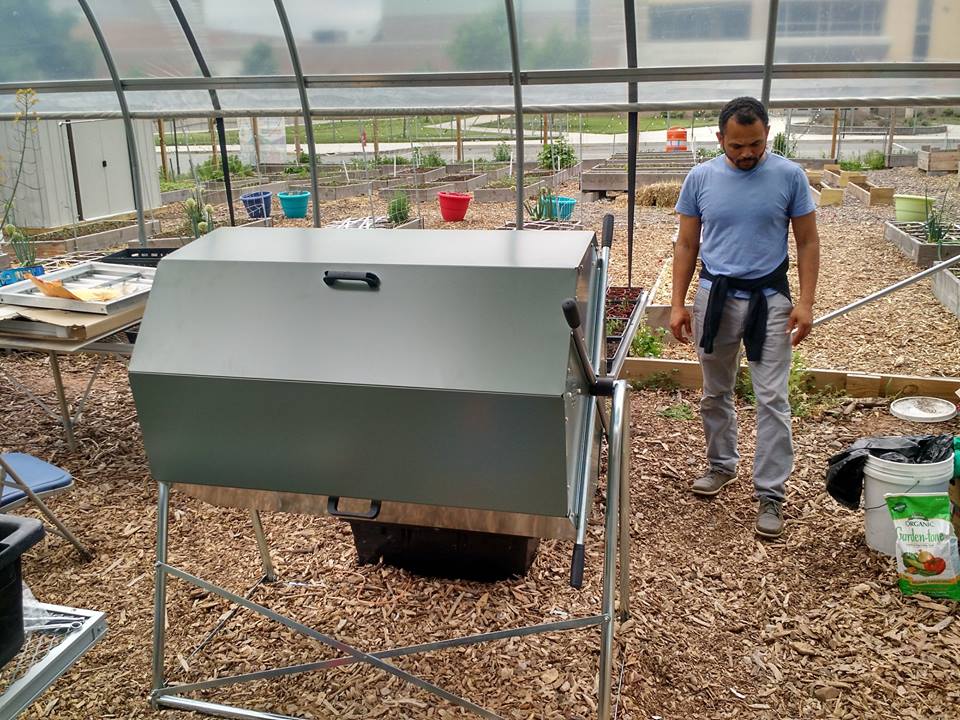
The Organic Gardener Podcast is a participant in the Amazon Services LLC Associates Program, an affiliate advertising program designed to provide a means for sites to earn advertising fees by advertising and linking to amazon.com
If you like what you heard on the Organic Gardener Podcast we’d love it if you’d give us review and hopefully a 5 star rating on iTunes so other gardeners can find us and listen to. Just click on the link here.

